For all of you who have been eating up large
over the break and for those who have set New Year's resolutions to lose
weight, we help you follow through.
Everyone feels like they need to lose
weight, even people who appear to bsae at a healthy weight. Often our weight
loss goal are based on what we think we should on what we think we should look
like, rather than what's reasonable for our bodies right now. Most people are
often too hung up about losing weight and are not focusing on the real enemy –
body fat!
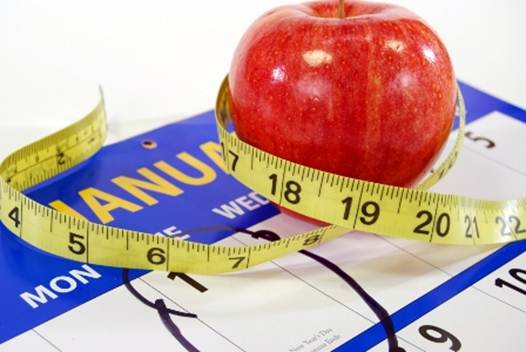
It's true, you may be overweight, but if
you concentrate on losing your body fat, the weight will also drop.
If you're used to eating the wrong kinds of
foods and not exercising, then you need to make some serious lifestyle changes
and you may as well face facts early on – it's not going to be easy. However,
the results will be more than worth it. As your body fat decreases and the
weight fades away, your energy levels will go through the roof and your daily
workload will becomes easier. You will feel happier and more confident. Your
entire outlook on life will change for the better. I ask you – is it not worth
making sacrifices and changing your ways to become a much happier and confident
person?
The only thing stopping you saying yes, is
the thought of the effort you will have to put into eating correctly and
exercising. Yes it's not easy, but as human beings we adapt to our environment,
whether that be a hot or a cold climate, or moving to a different town and
setting in. It's the same with nutrition and exercise. Once you start eating
different foods, they may start off tasting horrible because the are not full
of all those artificial flavours and sugars that your taste buds have been used
to. If you keep trying those same foods, your taste buds will acclimatise and
start to enjoy them. Eventually the foods that tasted bad will be enjoyable and
the fast and sugary foods of old will be intolerable.
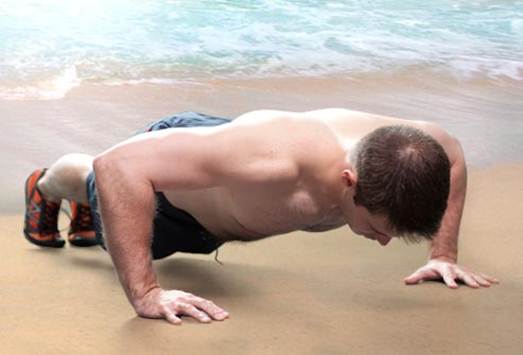
It's the same with exercise. To start off
you will be sore from the training, but as you keep going your body will become
conditioned and the soreness will start to disappear. You will after a short
period of time start to enjoy exercising and as you see the results in the
mirror by the way you look, it will only spur you on to push yourself harder.
Before you decide you are going to start
exercising and make these lifestyle changes, you need to understand you are in
this for the long haul. This isn't a quick fix scheme and if you stop your new
ways you will quickly fall back to where you started. Even though it's
something that needs constant effort over time, you must set realistic goals.
Start with weekly targets that are
achievable. After you have reached the end of the week set a new goal. That way
you are keeping yourself motivated and not asking too much at once. You also
don't need to exercise for long periods of time. Thirty minute workouts are
enough, but you have to push yourself whilst your are exercising. The aim is to
raise your heart rate as much as possible so that when you finish training you
are burning calories into the day or night. If you are new to training, it's
unlikely that you will be able to train for 30 solid minutes, so do what you can
and look to increase your effort each time.
Remember your body adapts to its
environment. This is good in terms of nutrition and getting used to exercise,
but it can also have a negative effect. If you keep following the same training
methods and routines your body will get used to this and the effects of
training will not be as good. You must vary and change your training programmes
regularly. Variety is crucial to your success.
You must keep the body and mind guessing.
If you have a personal trainer, then he or she should ensure when you come to
training you don't know what's happening that day. That way your mind will not
have a chance to subconsciously prepare your body for what's in store.
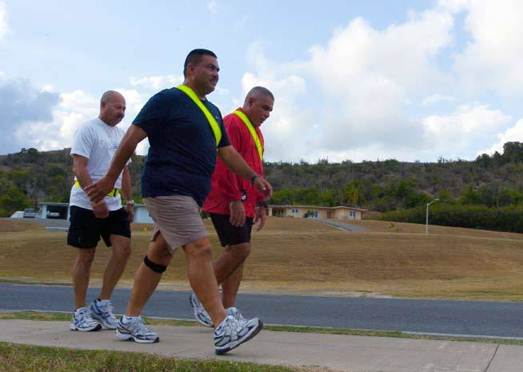
10 tips to ensure weight loss
1. Commit to the challenge. Accept losing weight and improving fitness
won't be easy and commit to it.
2. Make a plan. Write down work and family priorities and schedule
training around it.
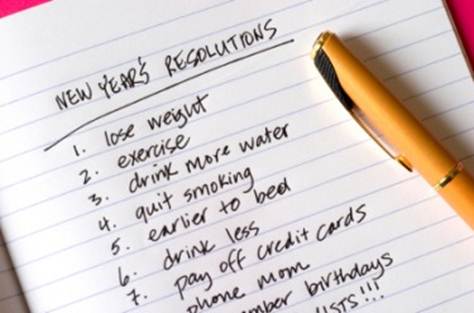
3. Prepare meals a day ahead. If you don't have healthy meals at hand,
you're more likely to reach for a less nutritious prepackaged snack.
4. Eat five to six small meals a day. Fill those meals with complex
carbodydrates like fruit and vegetables, protein from meat, eggs, fish, and the
good fats found in nuts, coconut, walnut, olive and flax omega oils.
5. Drink 3l of water everyday. The human body is 75 per cent water.
Water flushes toxins from the body, energises and improves mental clarity.
6. Train for at least 30 minutes. Five or six times a week.
7. Go hard. The higher you raise your heart rate, the longer you'll
burn calories after you stop exercising.
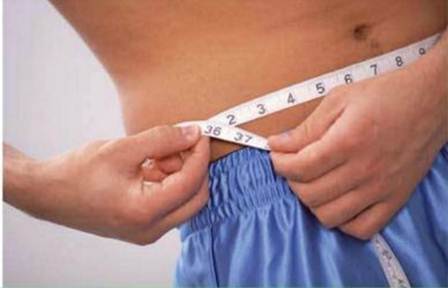
The
higher you raise your heart rate, the longer you'll
burn
calories after you stop exercising.
8. Ditch the sugar. An influx of sugar into the bloodstream upsets the
body's blood sugar balance and triggers the release of insulin to keep blood
sugar at a constant and safe level. Insulin also promotes the storage of fat,
so eating sugary foods means rapid weight gain.
9. Reduce intake of “hard carbs”. Get your dose of carbohydrates
through fruits ad vegetables rather than “hard carbs” like rice, pasta and
potatoes. Bread and pastry are no-nos.
10. Sacrifice plus pain, equals glory. Be prepared to make sacrifices if
you want to see changes. That means changing what and how you eat and
dedicating time to quality exercise.